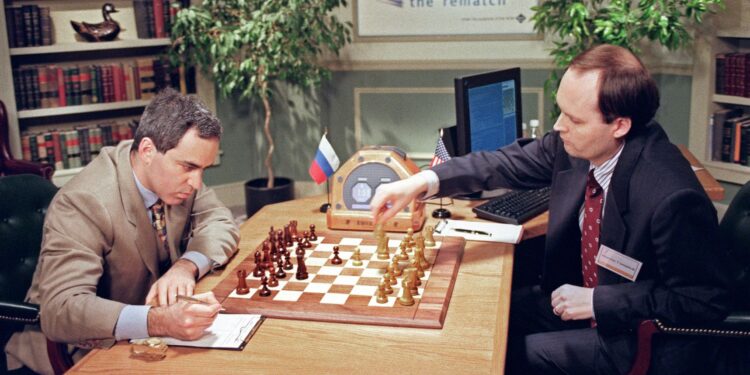In 1996, IBM’s Deep Blue first faced Garry Kasparov in Philadelphia for a six-game match that had a very different outcome from their famous 1997 rematch. In this first historic encounter, Kasparov demonstrated human supremacy over artificial intelligence by defeating Deep Blue with a score of 4-2.
The match began with Deep Blue achieving something remarkable – it became the first computer to win a game against a reigning world champion under regular tournament conditions. This victory in the first game sent shockwaves through the chess world. However, Kasparov’s response was emphatic. He adapted his strategy and went on to win three games and draw two, showing his superior ability to learn and adjust his play.
After losing the first game, Kasparov modified his approach significantly. Rather than engaging in the type of tactical battles where computers excel, he steered the games toward more strategic and positional play, forcing Deep Blue into positions where long-term planning and understanding were more important than raw calculation power.
This 1996 match proved particularly valuable for IBM’s team. They studied how Kasparov had exposed Deep Blue’s weaknesses and spent the next year significantly improving the computer’s software and hardware. These improvements would prove crucial in their 1997 rematch, where Deep Blue would make history by defeating Kasparov.
The 1996 match is often overshadowed by the more famous 1997 encounter, but it represents a crucial chapter in the story of human versus machine competition. It showed both the remarkable progress computers had made in chess and their limitations at that time. The match also demonstrated Kasparov’s exceptional ability to adapt and overcome a completely new type of opponent, highlighting the unique strengths of human intelligence.
The victory in 1996 made the 1997 defeat all the more dramatic, as it showed just how quickly artificial intelligence could progress when backed by determined development and learning from past experiences.
newshub




Recent Comments